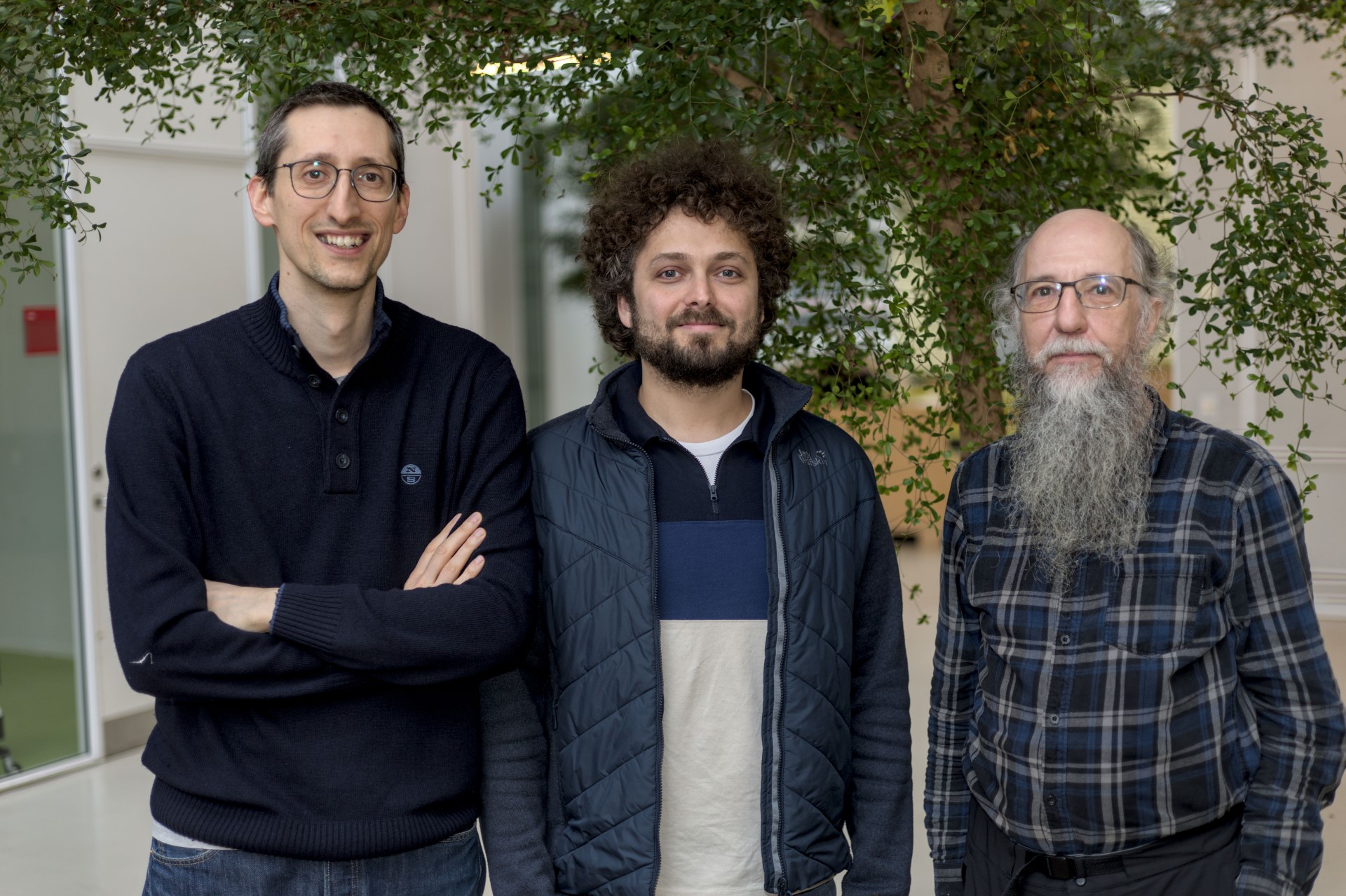ICPM goes North!
ICPM academic stories conference room publication outletDriven by Andrea Burattin, Ekkart Kindler, and Andrey Rivkin
 As many of you probably know, the 6th edition of ICPM will be taking place at, by far, the northernmost location: Copenhagen! Which is 473km more to the North than Eindhoven, the location for the 3rd ICPM. OK, for the picky ones, the actual location is at Kongens Lyngby, 10km further north from downtown Copenhagen. But fear not the distance from downtown: the Copenhagen area is one of the most cyclable areas in the world, and the local public transport network can handle an influx of ICPM participants without a hiccup.
As many of you probably know, the 6th edition of ICPM will be taking place at, by far, the northernmost location: Copenhagen! Which is 473km more to the North than Eindhoven, the location for the 3rd ICPM. OK, for the picky ones, the actual location is at Kongens Lyngby, 10km further north from downtown Copenhagen. But fear not the distance from downtown: the Copenhagen area is one of the most cyclable areas in the world, and the local public transport network can handle an influx of ICPM participants without a hiccup.
So, what should you expect from ICPM 2024? First and foremost, do expect a hard-working team of chairs and local organizers who want to push how the conference works. One of the outcomes of multiple brainstorming sessions is a steady shift towards having the academic and industry worlds be present equally at the event. What does it mean in practice? First of all, ICPM 2024 will provide more space for industry by allocating two full days for industry track participants to exchange experiences and foster networking within the process mining community. The venue will also feature a special track for stakeholders from the Nordic area and will provide a series of training sessions not only targeting process mining experts but also people who are just interested in the topic, who will be able to participate with the regular industry ticket. Second, we plan to actually reconcile the academic and industrial worlds by doing something that has been long forgotten: use case-specific demos and presentations. Oh, and not to hop off this train of ambitions: guess the 9-letter word that starts with ‘H’, end with ‘N’ and will infatuate all the Process Mining evangelists and nerds?
Moving to the academic highlights. You should expect the usual events, such as the research track, the workshops, the demos, the doctoral consortium, and more, but we are trying to innovate there as well. Among other things, we are particularly excited about the workshops that will run as “fully interactive”. These workshops will be a venue not to present ongoing work but to actually DO work! We are also looking forward to some changes in the way the doctoral consortium is planning to engage the students to be more active during the conference. Several innovations are to be expected also for the main track and for the demo track! Stay tuned! For those who still have a lot to do during conferences, we have reserved a great functional space full of “working cells” suitable both for group meetings and solo email-answering or paper-writing sessions (you can check the details of the space - and practice your Danish - here: https://youtu.be/yacnK5ea-xY).
Coming back to Copenhagen… We want you all to enjoy the city, and we are planning social events at some of its main landmarks. Please don't expect NOMA, however, as it cannot accommodate 400 participants.
We finish this “what's-cooking” note with a fun fact. Did you know that, over the last few years, the Copenhagen area has reached an alarming concentration of process scientists? Among many, the trend-makers reside in several companies (all the way from small startups to multinational corporations) and two main academic hubs: the section of “Software Systems Engineering” at DTU Compute (Technical University of Denmark) and the “Software, Data, People & Society” team at DIKU (Copenhagen University).
Who are the organisers?
People from the SSE section (that is, us) are the main driving force behind ICPM 2024. But what do we do beyond organising the conference? At the DTU team, apart from the individual research activities and interests, we collaboratively aim to investigate and research modelling and monitoring human-centric and flexible processes using data-driven techniques providing verifiable and explainable outcomes. This includes data-driven and AI techniques on the one hand and formal methods on the other hand - with process mining being the perfect balance of these two.
Here are the “vikings” (…) from the SSE section who are working hard - as ICPM local organizers - on an unforgettable Nordic "welcome" at DTU:
- Andrea Burattin (“the guy who made the bid” and “the locomotive of ICPM 2024”). He obtained his PhD and had his first post-doc experience at the University of Padova (Italy, with Alessandro Sperduti). After that, Andrea moved to Innsbruck (Austria) to work with Barbara Weber on projects related to the process of process modelling and the cognitive understanding of process models. In 2017, he moved to DTU where he walked his way from an Assistant Professor to Associate, and where he continues his investigation on process mining, focusing in particular on streaming process mining and mining human processes.
- Ekkart Kindler (“the wise one”). He was born into the Petri net community in 1995 with a PhD in modular verification. Petri nets were the entry to BPM, where he conceptualized the aspects of BPM among other things. In 2002, he turned to the dark side, Software Engineering, where he had his first experience with Process Mining in an effort to find out what software engineers actually are doing. Moving on to DTU in 2007, he focused on Model-based Software Engineering; after several colleagues from Process Mining joined DTU, he moved to the twilight-zone of theory and practice, where he investigates what Process Mining can do for software engineers, again.
- Andrey Rivkin (“the grey cardinal of ICPM 2022”). He obtained his PhD in 2019 in Bolzano, where he stayed as a postdoc until 2023, working predominantly on modelling and analysis of data-aware processes. In February 2023, Andrey moved to DTU where he started working as a tenure-track Assistant Professor. His current research agenda focuses on the intersection of BPM, Process Mining, formal methods and foundational (“classical”) AI.

- This article has been updated on June 10 2024, 16:53.
- Driven by Andrea Burattin, Ekkart Kindler, and Andrey Rivkin

